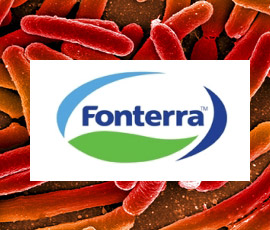China bans NZ milk powder in botulism scare

China and Russia have halted imports of milk powder from New Zealand after its largest dairy exporter, Fonterra, found a strain of bacteria causing botulism in some of its products.
Fonterra, the world’s fourth-largest dairy, recalled hundreds of tonnes of products, including infant formula and sports drinks, across seven countries on Saturday (3 August).
The bacteria, which is one of the most dangerous forms of food poisoning and can lead to paralysis and even death, was found in three batches of Fonterra’s whey protein.
China’s decision to suspend imports of whey powder and a type of dairy powder used for making infant formula could have a substantial impact on New Zealand’s dairy trade if the ban was lengthy, experts have warned.
China is New Zealand’s biggest export market, with about 80% of dairy products imported by China coming from New Zealand.
Russia has imposed a wider ban on New Zealand dairy products, even though it wasn’t among the countries to receive any of the tainted products.
Russia’s state sanitary watchdog agency, Rospotebnadzor, said in a statement that it was suspending imports of Fonterra products and taking steps to remove them from stores.
Other counties affected by the contamination include Australia, Thailand, Malaysia, Vietnam and Saudi Arabia.
New Zealand prime minister John Key said there was no question that the reputation of Fonterra and New Zealand, which exports up to 95% of its milk, had been damaged by the incident.
“In the medium to longer term, I’m actually comfortable that New Zealand can regroup from this,” he said. “We’ve got a very good international reputation and we’ve got good systems.”
Fonterra said the contamination was caused by a dirty pipe at a processing plant in May 2012. Samples turned up a potential problem in March this year, but the presence of bacteria which could cause botulism was only detected on 31 July.
Despite being produced last year, the dairy said the whey powder was only used in making base powder in March this year, at which point it was retested.
Some of its potentially contaminated whey protein was purchased by Coca-Cola, Australian health food company Vitaco and Chinese beverage maker Wahaha.
However, the manufacturing process used by those companies, including ultra-high temperature treatment, meant their products posed no risk, Fonterra added.
No illnesses have been reported as a result of the contamination.
